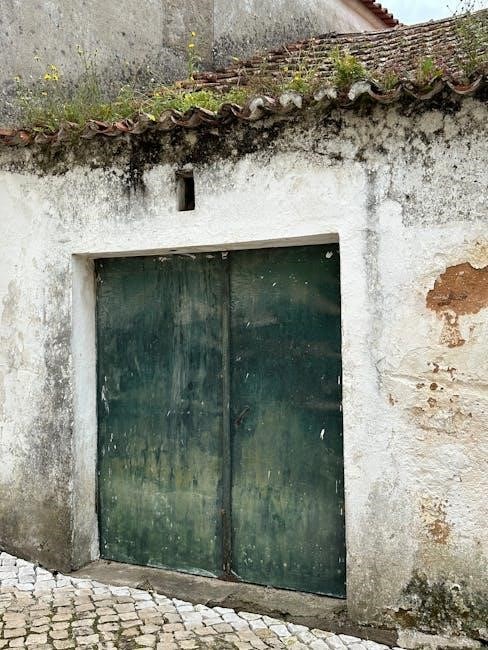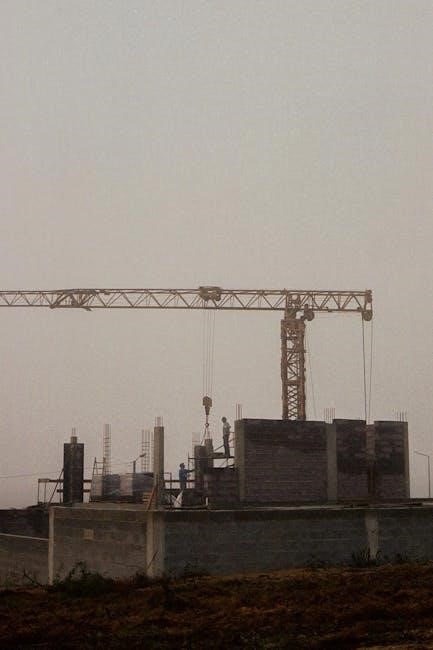lista dos escritores angolanos e suas obras pdf

Angolan literature reflects the country’s rich cultural heritage and complex history, offering diverse narratives that highlight its people’s resilience and unique identity.
1.1 Overview of Angolan Literary History
Angolan literary history traces its roots to oral traditions, evolving through colonial influences and independence movements. Early works often reflected cultural identity and resistance, while modern literature explores post-colonial realities. The mid-20th century saw a surge in nationalist writings, shaping the nation’s literary identity. Today, Angolan literature continues to grow, blending traditional themes with contemporary issues, offering a unique perspective on the country’s complex past and its aspirations for the future.
1.2 Importance of Angolan Writers in African Literature
Angolan writers have played a pivotal role in shaping African literature, offering unique perspectives on colonialism, identity, and cultural resilience. Their works, often infused with rich storytelling and historical depth, have contributed significantly to the continent’s literary canon. By addressing themes such as nationalism and social justice, Angolan authors have inspired movements and dialogues across Africa. Their influence extends beyond borders, fostering cross-cultural understanding and enriching global literary landscapes with distinct Angolan voices and experiences.

Early Angolan Writers and Their Contributions
Early Angolan writers laid the foundation for a vibrant literary tradition, blending cultural identity with historical narratives, and paving the way for future generations of storytellers.
2.1 Key Figures in the Emergence of Angolan Literature
The emergence of Angolan literature was shaped by pioneers like Luandino Vieira, whose works captured the essence of local culture, and Agostinho Neto, Angola’s national poet. These figures, along with others such as Pepetela and José Luandino Vieira, played crucial roles in defining the literary identity of Angola. Their writings often reflected the struggles of colonialism and the quest for national identity, laying the foundation for a rich literary tradition. Their contributions not only preserved cultural heritage but also inspired future generations to explore themes of freedom and social justice.
2.2 Notable Works from the Early 20th Century
The early 20th century saw the rise of Angolan literature, with works that reflected the socio-political landscape. Luandino Vieira’s Lua do Sertão and Agostinho Neto’s poetry stood out, capturing the essence of Angolan culture and resistance. These works laid the groundwork for a literary tradition that emphasized national identity and anti-colonial themes. They also inspired future writers to explore the complexities of colonialism and the struggle for independence, making them foundational to Angola’s literary heritage and a testament to the resilience of its people during turbulent times.
Mid-20th Century Angolan Writers
Mid-20th century Angolan writers played a pivotal role in shaping the nation’s literary identity, blending cultural themes with political resistance, and laying the groundwork for modern storytelling.
3.1 The Role of Independence Movements in Shaping Literature
The independence movements in Angola deeply influenced its literature, as writers used their works to express nationalist sentiments and resist colonial oppression. This period saw the emergence of themes like freedom, identity, and cultural revival, reflecting the nation’s struggle for sovereignty. Literature became a powerful tool for political expression, uniting people and inspiring hope for a post-colonial future. The intersection of politics and art during this time laid the foundation for a distinct Angolan literary voice, emphasizing resilience and the quest for self-determination.
3.2 Prominent Authors and Their Major Works
Mid-20th century Angolan literature flourished with authors like Agostinho Neto, whose poetry in Sagrada Esperança captured nationalistic sentiments. Pepetela’s Muata Kwatenba blended tradition with modernity, while Luandino Vieira’s Luuanda portrayed urban life. These writers explored themes of anti-colonial resistance, cultural identity, and social change, shaping a unique literary identity. Their works not only reflected the nation’s struggle but also influenced the broader African literary landscape, cementing Angola’s role in the continent’s cultural narrative.
Contemporary Angolan Writers

Contemporary Angolan writers like Ondjaki and Regina Jennings bring fresh perspectives, blending modern themes with cultural identity, enriching Angola’s literary scene with innovative storytelling and global appeal.
4.1 Modern Voices in Angolan Literature
Contemporary Angolan writers are redefining the literary landscape with fresh perspectives and innovative storytelling. Authors like Ondjaki and Regina Jennings blend traditional influences with modern themes, exploring identity, culture, and socio-political issues. Their works often reflect the complexities of post-independence Angola, offering nuanced narratives that resonate both locally and internationally. Digital platforms have also emerged as vital tools for these writers, enabling global dissemination of their works and fostering a new generation of readers. This modern wave of Angolan literature is characterized by diversity in genre, from magical realism to urban narratives, captivating audiences worldwide.
4.2 Popular Contemporary Works and Their Impact
Contemporary Angolan literature has gained significant recognition through works that address modern societal challenges. Novels like Ondjaki’s “The Whistler’s Tale” and Regina Jennings’ “The Woman of the Sands” explore themes of identity, urban life, and social inequality. These narratives resonate deeply with readers, sparking conversations about Angola’s post-independence struggles and aspirations. The impact of these works lies in their ability to bridge cultural gaps, fostering a global appreciation for Angolan storytelling. They also inspire younger writers, ensuring the continued evolution of Angolan literature in both local and international contexts.
Major Themes in Angolan Literature
Angolan literature explores themes of anti-colonialism, national identity, social inequality, and cultural heritage, reflecting the nation’s history and its people’s resilience through a blend of traditional and modern influences.
5.1 Anti-Colonialism and National Identity
Angolan literature often explores themes of anti-colonialism and national identity, reflecting the country’s struggle for independence and self-determination. Writers like Pepetela and Luandino Vieira critique colonial oppression, while celebrating Angola’s cultural richness. These narratives highlight the resilience of indigenous traditions and the quest for a unified national identity. By addressing historical injustices and cultural erasure, Angolan authors aim to reclaim their heritage and foster pride in their nation’s diverse traditions. This thematic focus remains central to understanding the socio-political context of Angolan literary production.
5.2 Social and Political Issues in Angolan Society
Angolan literature frequently addresses social and political challenges, such as inequality, corruption, and the struggles of everyday life. Writers like Pepetela and Luandino Vieira explore these themes, often blending critique with hope. Their works highlight the disparities between urban and rural life, as well as the lingering effects of colonialism. By portraying the resilience of ordinary people, these authors shed light on the complexities of Angolan society. Their narratives serve as a mirror, reflecting both the frustrations and aspirations of a nation navigating post-independence realities and striving for a more equitable future.
5.3 Cultural Heritage and Traditional Influences
Angolan literature is deeply rooted in the country’s cultural heritage, drawing from oral traditions, folklore, and the rich diversity of its ethnic groups. Many writers incorporate local myths, proverbs, and historical narratives to preserve and celebrate Angola’s identity. Traditional influences are evident in the use of indigenous languages and the portrayal of communal values. These elements not only enrich the literary landscape but also serve as a bridge between the past and present. By blending modern storytelling with ancestral wisdom, Angolan authors highlight the enduring significance of cultural heritage in shaping their nation’s collective memory and contemporary expression.

The Influence of Angolan Literature in Africa
Angolan literature has gained regional recognition, shaping African identity through its unique narratives and cultural depth, inspiring writers across the continent with its authentic storytelling and historical insights.
6.1 Regional Recognition and Impact

Angolan literature has significantly influenced African literary circles, fostering cultural exchange and inspiring regional writers. Its unique narratives, often rooted in colonial resistance and national identity, resonate deeply across the continent. Authors like Pepetela and Mia Couto have gained acclaim, bridging Angola’s stories with broader African experiences. This recognition highlights Angola’s role in enriching African literature, promoting cross-cultural dialogue, and celebrating shared histories. The literature’s impact is evident in its ability to transcend borders, uniting diverse voices and fostering a sense of African solidarity through storytelling.
6.2 Collaboration and Exchange with Other African Writers
Angolan writers have actively engaged in collaborative projects with other African authors, fostering a rich exchange of ideas and cultural perspectives. This cross-border dialogue has enriched both Angolan and African literature, creating a shared platform for storytelling. Collaborations have led to co-authored works, joint publications, and participation in regional literary festivals. Such exchanges highlight the common themes of identity, colonialism, and social justice, strengthening the bond between Angolan and other African writers. These partnerships not only enhance individual creativity but also contribute to a unified African literary voice, celebrating diversity and promoting mutual understanding.
The Global Reach of Angolan Literature
Angolan literature has gained international recognition, with works translated into multiple languages, connecting global readers to its unique cultural narratives and universal themes.
7.1 International Acclaim and Translations
Angolan literature has garnered significant international acclaim, with works by authors like Pepetela and Mia Couto being translated into numerous languages. These translations have introduced global audiences to Angola’s rich cultural narratives, fostering cross-cultural understanding. The universal themes explored in these works, such as identity, colonialism, and social justice, resonate widely. International recognition has also led to collaborations and awards, further cementing Angolan literature’s place in global literary circles. This global reach highlights the importance of Angolan voices in shaping a more inclusive and diverse world literature.
7.2 The Role of Angolan Literature in Global Cultural Dialogue
Angolan literature plays a vital role in global cultural dialogue by bridging cultural gaps and fostering understanding. Its unique narratives, rooted in Angola’s history and traditions, offer fresh perspectives to global audiences. By exploring universal themes like identity, colonialism, and social justice, Angolan writers encourage cross-cultural exchange and empathy. This literary exchange not only enriches global literature but also highlights Angola’s contribution to the world’s cultural tapestry, promoting diversity and inclusivity in international conversations.
Challenges Faced by Angolan Writers
Angolan writers face economic struggles, limited publishing opportunities, and societal pressures, hindering their ability to produce and share their work both locally and internationally.
8.1 Limited Access to Publishing and Resources
Angolan writers often struggle with limited access to publishing platforms and resources, hindering their ability to produce and distribute their work. Economic constraints and lack of infrastructure further exacerbate these challenges, making it difficult for authors to gain visibility. Many rely on international publishers or digital platforms, which are not always accessible. Additionally, limited funding for literary projects and training programs restricts the growth of new talent. These barriers underscore the need for increased support to ensure Angolan voices are heard both locally and globally.
8.2 Censorship and Political Constraints
Angolan writers have historically faced censorship and political constraints, particularly during the colonial era and the civil war. The government’s tight control over media and publishing often led to the suppression of dissenting voices. Many authors faced surveillance, censorship, or even exile for expressing politically sensitive ideas. This climate of repression stifled creativity and limited the free expression of Angolan literature. Even today, some writers navigate a complex political landscape, where criticism of the government can lead to repercussions. These challenges highlight the ongoing struggle for artistic freedom in Angola’s literary landscape.

The Future of Angolan Literature
Angolan literature’s future lies in emerging voices and digital platforms, fostering global accessibility and preserving cultural narratives for new generations to explore and celebrate.
9.1 Emerging Trends and Young Writers
Angolan literature is experiencing a vibrant resurgence through young writers who blend traditional storytelling with modern themes. These emerging voices explore identity, urban life, and social change, reflecting the nation’s evolving cultural landscape. Digital platforms and independent publishing are empowering new authors to reach global audiences. Collaborations with international writers and festivals are also fostering creativity. This generation is redefining Angolan literature, ensuring its relevance in a rapidly changing world while preserving the country’s unique narrative heritage for future generations to embrace and celebrate.
9.2 The Role of Digital Platforms in Promoting Angolan Literature

Digital platforms have revolutionized the promotion of Angolan literature, offering unprecedented accessibility and global reach. Social media, e-books, and online publishing have empowered writers to share their work widely, bypassing traditional barriers. These tools enable direct engagement with readers, fostering a vibrant literary community. Digital archives and translation apps further enhance the visibility of Angolan works, making them accessible to international audiences. This technological shift is democratizing literature, ensuring that Angolan voices are heard and celebrated worldwide, while preserving cultural heritage for future generations.

Conclusion
Angolan literature is a testament to the nation’s resilience and cultural richness. The works of its writers, preserved in accessible formats like PDFs, ensure their stories endure, inspiring future generations to celebrate and learn from Angola’s heritage.

10.1 Summary of Key Points
Angolan literature is a vibrant reflection of the nation’s history, culture, and identity. From early writers to contemporary voices, it explores themes of colonialism, independence, and societal challenges. The works of key figures like Pepetela and Mia Couto highlight the struggle for freedom and the preservation of cultural heritage. Modern authors continue to address social and political issues, ensuring literature remains a powerful tool for dialogue and change. Despite challenges like limited resources and censorship, Angolan writers have gained global recognition, contributing significantly to African and world literature.
10.2 Final Thoughts on the Significance of Angolan Literature
Angolan literature is a testament to the nation’s resilience and cultural richness. It serves as a bridge between the past and present, offering insights into the struggles and triumphs of its people. By addressing themes like identity, colonialism, and social justice, Angolan writers have created a body of work that resonates both locally and globally. Their contributions not only enrich African literature but also foster a deeper understanding of the continent’s diverse narratives. As Angolan literature continues to evolve, it remains a powerful voice for cultural preservation and human connection.

References and Further Reading
For a comprehensive list of Angolan writers and their works, refer to the recommended books and academic articles in the specified subheadings below.
11.1 List of Recommended Books and PDF Resources
Explore essential works by Angolan writers through recommended books and PDF resources. Notable authors include Mia Couto, Pepetela, and Luandino Vieira, whose works like “The True Story of the Three Little Pigs” and “The Reluctant Consul” offer deep cultural insights.
These resources provide a comprehensive understanding of Angolan literature, highlighting themes of identity, colonialism, and social change.
Access these materials through academic databases or online libraries to delve into the rich literary heritage of Angola.
11.2 Suggested Academic Articles and Reviews
For deeper insights, explore academic articles and reviews on Angolan literature.
These resources, available on platforms like JSTOR and Google Scholar, analyze works by Pepetela, Luandino Vieira, and others.
Topics include anti-colonial themes, post-independence narratives, and modernism.
Reviews of key texts like “Mayombe” and “The True Story of the Three Little Pigs” provide critical perspectives.
These scholarly writings enrich understanding of Angolan literary evolution and its cultural significance.